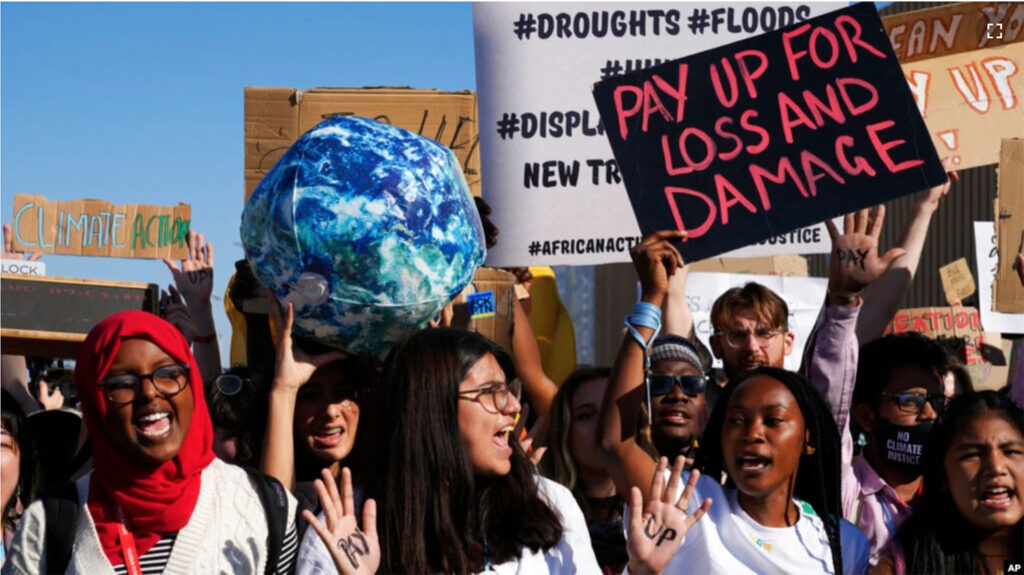By Gillian Ramirez, Alliance Intern from the University of California, San Diego
The UN Climate Conference (COP27) has concluded with mixed results, ranging from a long-sought victory with a vague commitment to major disappointments. The biggest issue was the demand by developing countries that industrialized countries pay into a fund that would cover the loss and damage caused by their climate emissions. Only after the conference formally concluded was a last-minute agreement reached to create a fund. However, the US and other industrialized countries delayed any financial commitments until next year’s COP, according to E&E News.
“Island nations, so often the moral voice at the talks, lauded the loss and damage outcome but expressed disappointment on the lack of progress to reduce emissions,” says E&E News. They are feeling nearly as hopeless as before. The price for the fund was a bargain with Arab and other oil states like Russia that no new climate commitments were made, along with the removal of a future ban on fossil fuels and China’s refusal to pay for loss and damage.
The 200 countries attending the two week-long conference accepted the proposal by VP of the EU delegation Frans Timmermans to set up the loss and damage fund. The US had previously rejected any accusations or repercussions until this point, according to E&E News.
There is no clarity on how much money is being proposed or where the funds will come from. The Conversation aptly puts it, “developed countries were able to avoid what they have always been unwilling to give: any concrete funding commitments or any acknowledgment of responsibility for reparations.” This quote perfectly encapsulates the sentiment held by developing countries. It is an example of a placebo fund in which proposed funds are arranged without any commitments.
China’s lack of acknowledgement for their significant contribution to emissions and disinterest in changing is quite alarming. The New York Times explains that “the UN currently classifies China as a developing country, which has traditionally exempted it from obligations to provide climate aid, even though it is now the world’s biggest emitter of greenhouse gases as well as the second-largest economy.” It’s well past time that the highest levels of government recognize the value of human and all life on the planet.

